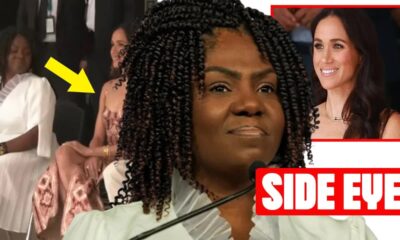All round
How young actresses are pressured into ‘creepy’ nude scenes
Actresses in the entertainment industry are often subject to demands from directors or producers to perform nude scenes or to expose themselves in some way.
These demands range from subtle persuasion to verbal abuse and threats.
For many women, this coercion begins early in their careers, before they have any influence on set, and they fear being labeled as “difficult” or losing their jobs if they refuse.
Loan Dang, a partner at the Los Angeles-based entertainment law firm Del Shaw Moonves Tanaka Finkelstein & Lezcano, says that “It happens to everyone… The actor gets pressured into doing something they don’t feel comfortable with.”
The fear of being fired and being easily replaceable is prevalent among young actors.
Trending:
- Meghan Markle Steals the Spotlight Again: A Royal Engagement Gone Awry
- “Harry and Meghan’s Tense Moment: A Marriage Under Scrutiny”
- Tension Unveiled: Frances Marquez’s Discontent with Meghan Markle in Colombia
- Elton John’s Scathing Remarks Leave Meghan Markle in Tears at Music Awards
- Meghan Markle’s On-Set Outburst: A Diva in Disguise?
The practice of forcing actresses to perform in the nude is being taken more seriously thanks to movements like #MeToo and Time’s Up that combat sexual misconduct and fight for true gender equality.
In the past, the entertainment industry was self-censored via regulations called the Motion Picture Production Code, and nudity was not as widespread as it is today.
By 2016, 25.6 percent of named female characters in the top 100 grossing films were depicted as heavily exposed, partially nude, or nude, compared to 9.2 percent of men, according to research by the University of Southern California’s Annenberg Inclusion Initiative.
The Screen Actors Guild – American Federation of Television and Radio Artists (SAG-AFTRA), the union that represents film and television actors, has a nudity clause in its collective bargaining agreement with the Alliance of Motion Picture and Television Producers.
The clause requires producers to alert performers to any expected nude scenes or sex scenes before their audition and obtain separate written consent from the actor for any such scenes. Additionally, the clause enforces a closed set when filming the scenes.
However, Dang says that these rules are only the bare minimum and that “People who have representation will negotiate beyond that.”
Dang usually asks for several additional protections for her clients, including an in-depth conversation between the director and her client about the scene, the ability for her client to review the scene in question in private, and provisions for modesty garments.
The effects of the #MeToo and Time’s Up movements are visible in the way the entertainment industry is shifting.
Some female-led projects, such as “The Handmaid’s Tale,” have female intimacy coordinators on set to ensure that actresses are comfortable with the scenes they are filming.




















































































